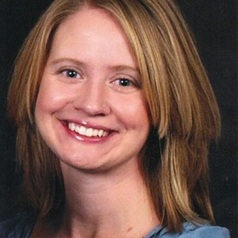
Meredith Richards
Associate Professor of Education Policy, Southern Methodist University
Meredith P. Richards is an associate professor of Education Policy at Southern Methodist University. Her research focuses on exploring the effects of educational policies on equity and stratification in schools and situating policies in their metropolitan and geographic contexts.
Less ![]()
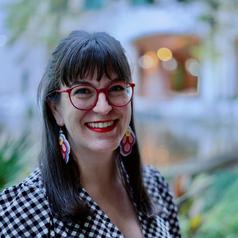
Meredith Warren
Senior Lecturer in Biblical and Religious Studies, University of Sheffield
I am a Senior Lecturer at the University of Sheffield, where I am the Director of the Sheffield Centre for Interdisciplinary Biblical Studies. In addition, I am editor in chief of the open-access Journal for Interdisciplinary Biblical Studies.
I have published numerous books and articles on early Christianity, early Judaism, and biblical texts. Most recently, I published a co-authored text book with Sara Parks and Shayna Sheinfeld titled Jewish and Christian Women in the Ancient Mediterranean (Routledge 2022). I have two previous mongraphs. Food and Transformation in Ancient Mediterranean Literature (SBL, 2019) defines a genre of transformative ingestion called hierophagy. I use sensory analysis to explore how performative consumption brings about access to other worlds in ancient Mediterranean narratives. My first book, My Flesh is Meat Indeed (Fortress; 2015), evaluates how John 6:51c–58 contributes to the gospel’s presentation of Jesus as divine in light of Hellenistic attitudes about sacrifice, divinity, and the consumption of human flesh. Soon to be published are two co-edited volumes on Judeophobia and the New Testament (Eerdmans 2025) and on Good Omens and the Bible (Sheffield Phoenix 2025).
Less ![]()
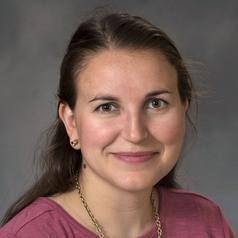
Meredith K. Ginley
Assistant Professor of Psychology, East Tennessee State University
Dr. Meredith Ginley is an Assistant Professor in the Department of Psychology at East Tennessee State University and a Licensed Clinical Psychologist. She completed her undergraduate degree at Tufts University, her Ph.D. at The University of Memphis, and her clinical internship at the University of Mississippi Medical Center. She also completed a postdoctoral fellowship in addiction at the University of Connecticut School of Medicine.
Her research focuses on efforts to improve outcomes and retention in treatment for substance use disorders and behavioral addictions. Specifically, she is interested in how targeting individual differences can improve treatment uptake and retention and how providing adjunctive interventions such as motivational interviewing and contingency management can improve overall treatment outcomes. She has over 20 publications specifically related to gambling and has been engaged in the treatment of individuals with gambling disorder as either a clinician or a clinical supervisor since 2011.
Dr. Ginley is a co-investigator at The Institute for Gambling Education and Research and Director of The Gambling Clinic East. She is currently a co-investigator on a grant from the Tennessee Department of Mental Health and Substance Abuse Services to facilitate expanded access to gambling prevention and treatment services for all Tennesseans.
Less ![]()
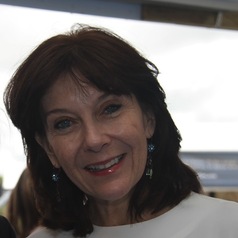
Mererid Hopwood
Professor of Welsh and Celtic Studies, Aberystwyth University
Mererid Hopwood is Professor of Welsh and Celtic Studies, Aberystwyth University. Before that she had been Professor of Languages and the Curriculum Cymreig in the University of Wales Trinity Saint David.
She has spent her career in the fields of languages, literature, education and the arts. She won the National Eisteddfod of Wales’ Chair, Crown and Prose Medal and Welsh Book of the Year prize for poetry in 2016 for her collection of poems, Nes Draw. She has been children’s poet laureate of Wales (Bardd Plant Cymru) and in 2018 won the Tir na n’Og prize for her writing for children. She was awarded the Hay Festival Poetry Medal in 2023.
Mererid has composed words for musicians, visual artists and dancers, and has taken part in literature festivals in Europe, Asia and South America. She has translated many works of literature into Welsh including plays from Spanish and German for Theatr Genedlaethol Cymru.
She is Fellow of the Learned Society of Wales, University of Wales Trinity Saint David and the Academi Gymreig, and Honorary President of the Waldo Williams Society. She is Secretary of the Academi Heddwch Cymru (Wales' peace institute).
Less ![]()

Merewalesi Yee
PhD Candidate, School of Earth and Environment Sciences, The University of Queensland
I am a Fijian woman pursuing a PhD at The University of Queensland, in Brisbane, Australia. My project seeks to advance understanding of opportunities and challenges for transformative mobilities where mobility contributes to climate change adaptation and positive development outcomes across multiple scales, places of origin, destination and transition. My research site is Fiji. Standing on the shoulders of three Giants that form my advisory team A/Prof Karen McNamara (UQ), A/Prof Celia McMichael (Unimelb) and Dr Annah Piggott-McKellar (QUT). Prior to my PhD journey, I have worked at USP as a regional teaching assistant/facilitator for students around the Pacific. During my PhD , I have been privileged to be part of several projects funded by the Australian Research Council as a research assistant and project officer using Talanoa research method to investigate climate change and adaptation, voluntary immobility, planned relocation, place-belongingness and gender food security and disaster resilience in the context of climate-related risks. I have conducted fieldwork in 8 communities in Fiji from 2021 to 2022. I am also a fellow with Australia Climate for Change organisation whose main aim is to help everyday Australians to have a better conversation about climate change and to take action.
Less ![]()
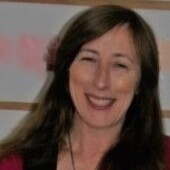

Meridith Sones
PhD Candidate and Knowledge Mobilization Manager, Faculty of Health Sciences, Simon Fraser University
I'm part of the Cities, Health, and Active Transportation Research (CHATR) Lab at Simon Fraser University and the Knowledge Mobilization Manager for the Interventions, Research, and Action in Cities Team (www.teaminteract.ca). My research explores how community design shapes social connectedness, health, and equity in cities.
Less ![]()
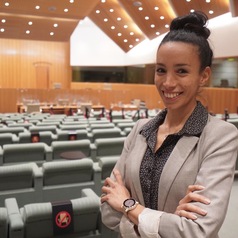
Meriem Naili
PhD candidate, College of Social Sciences and International Studies, University of Exeter
Meriem, a PhD candidate at the College of Social Sciences and International Studies, has spent recent months conducting interviews as part of her research on the conflict in Western Sahara. The interviews took place in London and New York where she gained valuable insights from, among others, Aminatou Haidar, one of Africa’s most prominent human rights activist and Nobel Prize nominee.
Meriem’s research focuses on the absence of an explicit human rights monitoring mechanisms in the United Nations Mission for the Referendum in Western Sahara (MINURSO). In April 2019, the United Nations Security Council unanimously extended the mandate of MINURSO for the 45th time since its creation in 1991, but once again did so without entrusting the Mission with any human rights monitoring responsibilities. This makes MINURSO the only post-Cold War UN peacekeeping mission without a human rights monitoring mandate. This is despite the fact that, according to reports from major international NGOs, human rights abuses have been committed by both parties to the long-running conflict in Western Sahara.
Against this background, Meriem is evaluating the extent to which human rights monitoring and protection mechanisms can play a part in advancing the current process towards a peaceful resolution of the conflict in the Western Sahara. She has a particular interest in the issue regarding the right to access natural resources and their management by a people living in a Non-Self-Governing Territory. To that effect, she has been invited to join a panel at the next World Congress of the International Political Science Association due to take place in Lisbon next summer under the title: “Why do natural resources matter in the Western Sahara conflict: Actors and Strategies”.
In addition to working on her thesis, Meriem has participated in a number of high-profile conferences and meetings on the subject of the Western Sahara throughout Europe. She is a member of the steering committee of the International Academic Observatory on Western Sahara at the University of Paris Descartes. As such, she has participated in a pluri-disciplinary colloquium in Amiens earlier this year on the legal, economical, anthropological and social questions raised by the situation in Western Sahara.
Meriem has recently been offered a placement at the European Parliament in Brussels where she will be working closely with the Human Rights Advisor to the Greens/EFA group, looking specifically at the relations between the EU and Western Sahara.
Less ![]()
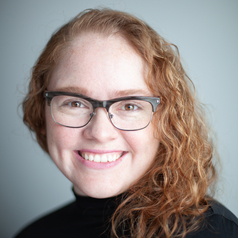
Merissa Daborn
Assistant Professor in Indigenous Studies, University of Manitoba
Dr. Merissa Daborn is a white scholar and an Assistant Professor in the Department of Indigenous Studies at the University of Manitoba where she researches at the intersections of food, technoscience, surveillance, policing, policy, and whiteness.
Her latest research is focussed on the relationship between citizen surveillance, policing, and grocery stores as carceral spaces in Winnipeg.
Merissa is a member of the Indigenous STS Lab in the Faculty of Native Studies at the University of Alberta. She is dedicated to research in the areas of urban Indigenous studies and Indigenous STS (science, technology, and society).
Less ![]()

Merissa Elizabeth Hickman
Postgraduate Researcher in Preconception Health and Genetics., University of Leicester
Merissa Elizabeth Hickman is a current PhD student at The University of Leicester. She is a Wellcome Trust Genetic Epidemiology Doctoral Training Programme Candidate. Her research focuses on Responsibilisation Practices in the Preconception Period. She is taking on the role of Secretary for the UK Preconception EMCR Network as of January 2024.
Less ![]()

Merja Myllylahti
Project manager and author for Journalism, Media and Democracy (JMAD) Research Center, Auckland University of Technology
Merja Myllylahti is a researcher at Auckland University of Technology in New Zealand. Her research interests lie in digital media economy , online news business models and media ownership. She is also a project manager and author at the AUT Center of Journalism, Media and Democracy (JMAD). She is experienced financial journalist and TV reporter having worked 15 years in London for newspapers, TV and online media.
Less ![]()
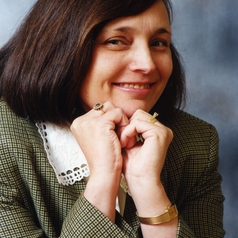
Merle A. Williams
Professor Emerita of English and Research Associate of the African Centre for the Study of the United States, University of the Witwatersrand
Merle A. Williams is Professor Emerita of English in the School of Literature, Language and Media at the University of the Witwatersrand in Johannesburg and a Research Associate of the African Centre for the Study of the United States (ACSUS). Her main interests lie in the relations between literature and philosophy, trauma theory and Holocaust writing, as well as Romantic poetry and fiction from the nineteenth century to the present.
Merle has published widely on the canonical author Henry James, including 'Henry James and the Philosophical Novel: Being and Seeing' (Cambridge University Press, reprinted in 2009). She is currently completing a critical text of 'The Awkward Age' for 'The Cambridge Edition of the Complete Fiction of Henry James'. She has also edited literary-theoretical collections entitled 'Hospitalities: Transitions and Transgressions, North and South' (Routledge 2020) and 'Cultures of Populism: Institutions, Practices and Resistance' (Routledge, 2022). A co-edited volume on the interplay between literature and identity is in progress.
Merle has held visiting research positions in Germany, Sweden and the United States. Through ACSUS she is involved in a range of international academic collaborations, notably teaching a course on 'Cultures of Hate and Oppression: Antisemitism, the Holocaust, Colonialism and Gender' for the Open Society University Network (OSUN).
Less ![]()
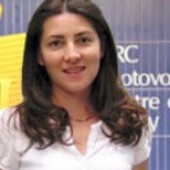
Merlinde Kay
Associate professor, School of Photovoltaic and Renewable Energy Engineering, UNSW Sydney
Less ![]()
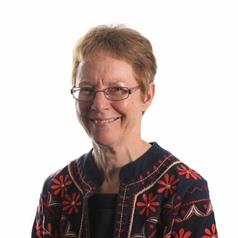
Merrilyn Goos
Adjunct Professor of Education, University of the Sunshine Coast
I am a mathematics educator and mathematics education researcher with doctoral and Master's degrees in this field. I was formerly a secondary school mathematics teacher, following a first career in industry as a food technologist.
Less ![]()

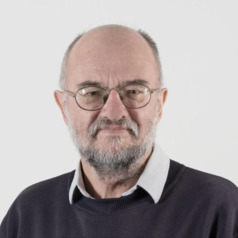
Mervyn Jackson
Associate Professor, STEM|Health and Biomedical Sciences, RMIT University
PhD brought together three inter-related areas: Psychology, Tourism, and, Criminal Victimisation
Less ![]()
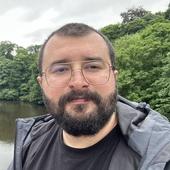
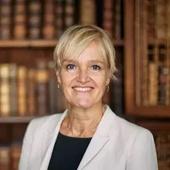
Mette Morsing
Director of the Smith School of Enterprise and the Environment, University of Oxford
Less ![]()
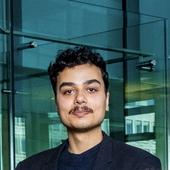
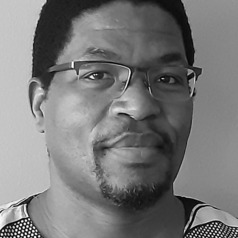
Mfaniseni Fana Sihlongonyane
Professor of Development Planning and Urban Studies, University of the Witwatersrand
Mfaniseni Fana Sihlongonyane was appointed lecturer in the Planning Programme (department then) in 1996. He is currently a Professor of Development Planning and Urban Studies. He is the director of the Planning Programme, a chairperson of the Committee of Planning schools (CHoPS), a board member of the Gauteng City-Region Observatory (GCRO) and a member of the South African Council for Planners (SACPLAN). He has been a member of Gauteng Development Tribunal and has worked with various communities in the country. Fana is the first PI on the Wits-TUB-UNILAG Urban Lab. His research interests spread over a wide range of theoretical, applied and policy arenas in the global as well as African realms of development. The research encompasses principally the interface between development Planning and urban studies largely within the context of the poignant dynamics of the political economy in Africa. His main interests include: African city and African Urbanisms, African Political economy, Dynamics of Globalisation and Local Economic development, Urban change and the political and cultural economy, Traditional Leadership, theories and Discourses of Urbanisation. Through her base in CUBES, Marie has engaged in policy debates and networks nationally, regionally and globally.
Less ![]()

Mhairi Morris
Senior Lecturer in Biochemistry, Loughborough University
Mhairi (“Vari”) Morris graduated from the University of Glasgow with a degree in Medical Biochemistry in 2004, then took up a PhD scholarship with Professor Lawrence Young at the University of Birmingham, investigating the role of the viral oncoprotein, latent membrane protein 1 (LMP1), in modulating epithelial cell invasion and metastasis. On completion of her PhD in 2008, Mhairi continued her LMP1 research at Birmingham.
Following a brief career break from 2010-2013, Mhairi returned to academia as a Lecturer at De Montfort University, Leicester, where she attained her Postgraduate Certificate in Higher Education (PGCertHE) with distinction. Mhairi was promoted to Senior Lecturer in 2014, and awarded DMU Teacher Fellow status in 2016, prior to joining Loughborough University in the School of Sport, Exercise and Health Sciences in February 2017.
Mhairi currently supervises 2 PhD students at Loughborough University. She previously held an Eric Reid Methodology Award from The Biochemical Society, and currently sits on the editorial board for the Pathogens and Frontiers in Physiology journals.
Her current research interests include understanding the interactions between cancer cells and stromal cells in the tumour microenvironment, and how exercise may impinge on these interactions. In particular, Mhairi has an interest in using a novel 3D model system developed by her recently qualified PhD student for investigating the interactions between mesenchymal stem cells and 3D tumour spheroids.
Less ![]()
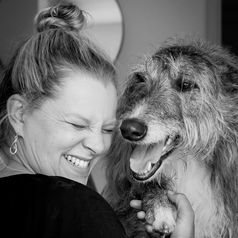
Mia Cobb
Research Fellow, Animal Welfare Science Centre, The University of Melbourne
Dr Mia Cobb is an animal welfare scientist, science communicator and research fellow at the University of Melbourne's Animal Welfare Science Centre in Victoria. Her research explores human attitudes, housing and management practices, animal behaviour, stress physiology and how animal welfare relates to the sustainability of animal-based industries. Mia is also active in the exciting domains of science communication, emerging technologies, citizen science, welfare auditing, and all things dog.
Following an undergraduate science degree majoring in animal behaviour, she worked in animal welfare shelter and working dog industry for over a decade. In 2012, she founded a popular collaborative blog (Do You Believe In Dog?) with fellow canine scientist, Julie Hecht, who is based in New York.
Mia led the Australian Animal Welfare Strategy's working dog initiatives to advance the welfare of Australia's iconic working dogs and is a Director of the Australian Working Dog Alliance, a registered non-profit organisation that works with industry to improve the welfare of Australia's working and sporting dogs.
Less ![]()

Mia Edwards
PhD candidate in History, University of Warwick
Mia Edwards is an AHRC-funded PhD student at the University of Warwick. Her research focuses upon exploring the intersections between masculinity, disability, and physicality for enslaved men within the 19th century U.S. South. In particular, her research explores the lives of enslaved men who were physically disabled, whether congenitally or from age, sickness, or injury, within a range of contexts such as labour, community cohesion, and interpersonal conflict. This research seeks to understand how these men were treated and viewed by others, how they viewed themselves, and how their experiences of disability interacted with conceptions of masculinity during the period. This work is framed within wider discussions and conceptions about disability, race, and masculinity that were occurring during the antebellum period.
Less ![]()
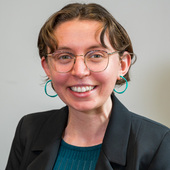
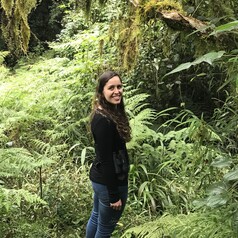
Mia Momberg
Postdoctoral research fellow, Department of Plant and Soil Science, University of Pretoria
Less ![]()
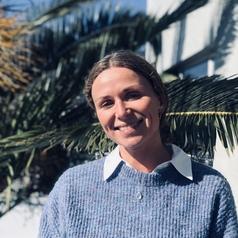
Mia Strand
Ocean Nexus Postdoctoral Research Fellow, Institute for Coastal and Marine Research, Nelson Mandela University
Mia Strand is an Nippon Foundation Ocean Nexus Postdoctoral Research Fellow at Nelson Mandela University, who’s research centres around socio-cultural and equity dimensions of ocean governance and conservation. Her research has largely explored the value of arts-based participatory research for more inclusive and equitable ocean governance in South Africa, specifically emphasising the need to better recognise Indigenous and local knowledge systems in decision-making processes
Less ![]()
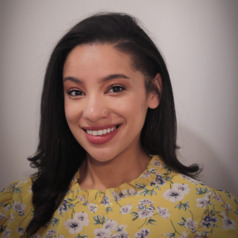
Mia Angelica Powell
PhD Student in Department of Political Science, Penn State
Mia A. Powell is a doctorate student at Penn State University's political science program. She studies American politics, and her research focuses on racial/ethnic politics, political behavior, and voting systems. Powell previously earned her bachelor's in Sociology with a minor in Political Science from California State University, Fullerton.
Less ![]()

Mia Chen Ma
Research Fellow in Medical Humanities, China and the UK, University of Strathclyde
Dr Mia Chen Ma received her BA and MA in Chinese Literature and Language from Wuhan University and University of Illinois Urbana-Champaign respectively.
She then earned her PhD in Chinese Literature and Culture from SOAS in 2022. She is currently revising her PhD thesis into a book, tentatively entitled Ecocriticism in Chinese Science Fiction: Risk, Failure, and Solastalgia (Brill). Her research interests include modern and contemporary Chinese literature, speculative fictions, and ecocriticism.
Her research articles and book chapters have appeared or are forthcoming in a number of scholarly journals and edited volumes, including Ecocriticism and Chinese Literature: Imagined Landscapes and Real Lived Spaces, The Edinburgh Companion to Science Fiction and the Medical Humanities, Extrapolation, Prism: Theory and Modern Chinese Literature, SFRA Review, Vector, Bochum Yearbook of East Asian Studies, etc. Her most recent research project focuses on cultures of care, and explores the intersection between medical and environmental humanities.
Research interests:
Modern and Contemporary Chinese Literature
Ecocriticism and Speculative Fiction
Risk discourse and Contemporary Chinese Society
Literature and Medical Humanities
Posthumanism and Taoism
Less ![]()

Mia-Marie Hammarlin
Senior Lecturer in Media and Communication Studies, Associate Professor of Ethnology and fellow at The Birgit Rausing Centre for Medical Humanities, Lund University
My 4-year research project 2020–2023, financed by Riksbankens Jubileumsfond, concerns the anti-vaccination movement. The growing vaccination hesitancy characterized by extensive discussions on the internet, constitutes the empirical focus. The project also has a method developing purpose in examining how quantitaive (language technology) and qualitative (ethnographic) methods can be combined to an effective tool for exploring how arguments are established, emitted and circulated on the internet.
Since 2009 I have been employed as Senior Lecturer in Media and Communication Studies and Journalism, and was Head of Department for four years. I am a trained ethnographer with a theoretical interest in phenomenology. For many years I have studied mediated scandals with focus on the emotions these moral moments of drama arouse, both in the individual and in society. I am also a trained journalist, and have worked for the Swedish Public Service Radio and Television.
Less ![]()

Miao Yu
Professor of Chemical and Biological Engineering, University at Buffalo
Dr. Yu Joined the Department of Chemical and Biological Engineering at the State University of New York at Buffalo as an Empire Innovation Professor in January 2021. He was an Associate Professor in the Department of Chemical and Biological Engineering at Rensselaer Polytechnic Institute (RPI) from August 2017 to January 2021. He was an Assistant Professor in Chemical Engineering at the University of South Carolina (UofSC) between 2012 and 2017. Before joining UofSC, he was an assistant research professor in Chemical Engineering at the University of Colorado, Boulder (CU-Boulder) from 2010 to 2012. He obtained B.S. (1998) and M.S. (2002) degrees from Tianjin University, China. He earned his Ph.D. degree from CU-Boulder in 2007, and subsequently worked in the same department as a postdoctoral researcher from 2007 to 2010. Dr. Yu has published >60 peer-reviewed papers, with two in Science and others in Nature Communications, Advanced Materials, JACS, Nano Letters, Angewandte Chemie International Edition, ACS Catalysis, Chemical Communications, etc. He is a recipient of 2015 NSF Career Award.
Less ![]()

Micah English
PhD Candidate, Political Science, Yale University
Micah is a fourth year PhD candidate at Yale University studying American politics. Micah researches Black politics, social movement mobilization, and the politics of gender and sexuality. Micah is also working on a project that locates hip-hop music and culture as a site for conservative politics. Micah currently serves as the graduate student representative on the APSA Sexuality & Politics research section. Prior to starting graduate school, Micah served as a non-profit consultant, a film publicist, and conducted research in the Sociology department at Georgetown University. Micah received her undergraduate degree in Political Science from Duke University.
Less ![]()
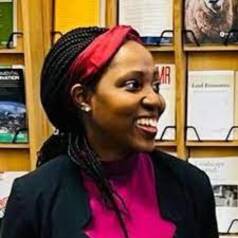
Micah Lucy Abigaba
Energy Economics Lecturer, Makerere University
Micah Lucy Abigaba is an energy economist and lecturer in the Business School at the Makerere University, Kampala, Uganda. She successfully defended her PhD thesis "Four essays on oil price uncertainty, optimal investment strategies and cost transmission of an oil price shock" at the Norwegian University of Life Sciences.
Less ![]()
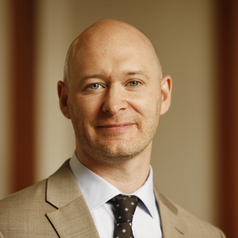
Michael A. Livermore
Michael A. Livermore joined the faculty as an associate professor of law in 2013. His primary teaching and research interests are in administrative law, computational analysis of legal texts, environmental law, cost-benefit analysis and regulation. He has published numerous books, chapters and articles on these topics, with a special focus on the role of interest groups and public-choice dynamics in shaping the application and methodology of cost-benefit analysis.
Prior to joining the faculty, Livermore spent five years as the founding executive director of the Institute for Policy Integrity at New York University School of Law, a think tank dedicated to improving the quality of government decision-making through advocacy and scholarship in the areas of administrative law, cost-benefit analysis and regulation. During his time there, the institute participated in dozens of regulatory proceedings on a diverse set of issues ranging from climate change to prison safety.
Livermore earned his J.D. magna cum laude from NYU Law, where he was a Furman Scholar, was elected to the Order of the Coif, and served as a managing editor of the Law Review. After law school, he spent a year as a fellow at NYU Law's Center on Environmental and Land Use Law before clerking for Judge Harry T. Edwards on the U.S. Court of Appeals for the D.C. Circuit.
Less ![]()

Michael Adams
Professor Michael Adams is an internationally recognised specialist in corporate law, corporate governance, securities markets regulation (insider trading and market manipulation) and legal education (especially e-learning). Michael has been writing, teaching and regularly presenting on all these topics for over 25 years. He is a Fellow of the Australian College of Educators (FACE), as well as the Australian Academy of Law (FAAL), and is also a Fellow of the Governance Institute of Australia (FCIS/FGIA-Life). Professor Adams is formerly President of the Australasian Law Teachers Association, the Corporate Law Teachers Association and Chartered Secretaries Australia (now Governance Institute). He is Deputy Chair of the Council of Australian Law Deans (CALD) and a director of the Australian Academy of Law, director of Australian Pro Bono Centre, and the charity, FreedomHub. He is the co-author of ten books and chapters, 50 articles and over 180 conference/seminar presentations. In 2000 he was the recipient of the Australian University Teacher of the year for Law and Legal Studies.
Less ![]()
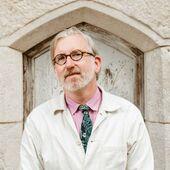
- Market Data




















